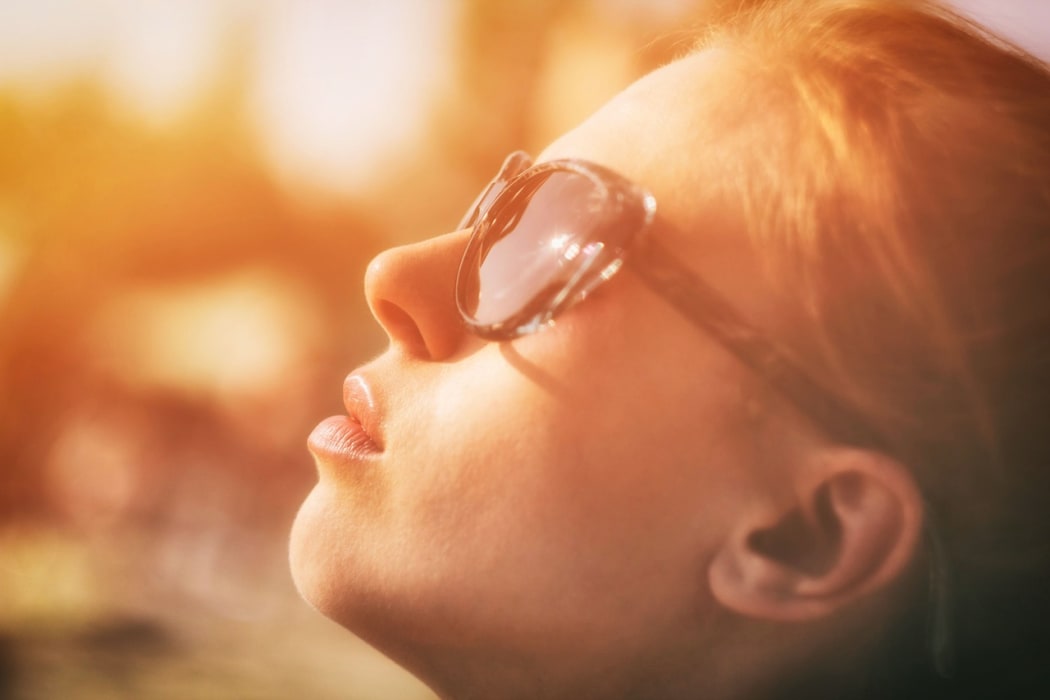Our biology is set up to work in partnership with the sun, says science writer Linda Geddes.
And yet in our modern world, the sun is cast as the villain that causes cancer and we have traded sunlight for an indoor lifestyle, with artificial light as a replacement.
But this has consequences and we are starting to understand the importance of natural light in our lives.

Photo: Pixabay
Geddes’ new book is Chasing the Sun. The New Science of Sunlight and How it Shapes Our Bodies and Minds.
Our connection to the changing seasons, and the changing rhythms of the day has been broken. Electric lighting and central heating shields us from the extremes of heat, cold, light and dark, Geddes says.
“We have these things in our bodies called circadian rhythms which are 24 hour cycles in the activity of pretty much every physiological process from the activity of our immune cells to when we feel sleepy and awake, to things like our blood pressure, our body temperature, our muscle strength and our brain chemistry; all these things vary over the 24-hour period.”
And our body knows what the time is because our brain runs a kind of master clock, she says.
“In every one of our cells there is this molecular clock, that is ticking away driven by a set of interacting proteins and these clocks vary in length between individuals but they are all roughly close to 24 hours.
“Light signals to a little patch of brain tissue called the SCN [suprachiasmatic nucleus] I refer to it as the brain’s master clock, when we see sunlight in the daytime, that sends a strong signal to the brain that it’s daytime and that is transmitted to the rest of the body so we are able to stay on time with what’s going on outside.”
The problem is we are messing with that internal clock.
“We have a lot of electric lighting, we stay up long after dark so if we’re seeing light at night that will change the timing of our body clock.
"Light stimulates the brain, it has an alerting affect, so another thing that happens if you are seeing light at night, particularly blue light, and you feel more alert. So all light will have this affect on you, but you need less blue light, less intense blue light for it to happen."
If we don’t have darkness in our homes at night, she says, this can push our body clocks later and we become more night owlish.
She tells Jesse Mulligan the idea for book came after a trip to Las Vegas.
“I’d been in a meeting for several days with a bunch of forensic scientists and we were in this business hotel, in a meeting room that had no windows whatsoever.
“We’re in there all-day-long and in the evenings we were marching through the casino floors and having fun, and I also had jet lag from travelling to Las Vegas from the UK, and after several days of this I was just desperate to get outdoors and to enjoy some sunlight and feel some sun on my skin.”
But when she went outside there was nowhere to go.
“I just couldn’t find anywhere to sit outside, the whole city - even though it’s in the middle of the desert - seems to be set up to hide from the sun and keep people away from it.”
So what happens if we live with more light in the day and less at night? There have been two studies on the Amish, she says.
“They have the lowest prevalence of seasonal affected disorder in any Caucasian group that’s been studied so far.
“They go to bed far earlier than we do so it’s quite normal in winter they tend to be going to bed at about 8.30pm, in summer more like 9pm.”
The whole Amish society is designed for people getting up and being out of the house by 5am, she says.
“I interviewed an Amish night owl and she said, ‘you know it’s really tough, if I could live the way I wanted to live I could be in bed by 10 o’clock and be waking up at 6am.”
In the modern world, we have shifted our body clocks later, she says.
“When our alarm clocks are going off at 6am or 7am our bodies are still in night mode, so first of all we might be cutting short our sleep.
“In the early morning, before dawn, you tend to have the real trough in your mood so you have your worst, lowest mood at 4am and also your alertness is at its lowest then.
“If your body clock is being pushed later and later and you’re waking up at 6am those troughs are also going to come later so you are waking up when your body’s still in night mode.”
Geddes has some tips to keep a healthy body clock ticking
- Try and keep things dim in the evening
- Try to walk to work or to school as much as possible
- Try and get out at lunchtime if you can
- Exercise outdoors rather than gym
And if it’s overcast in the middle of winter, don’t imagine there’s no benefit being outside, she says.
“Illuminance or brightness is measured in a unit called lux, the lux in a typical office is between 100 and 300, lux most homes at night is between 60 to 80 lux.
“Outdoors, even on an overcast day, it is around 3000 lux, more than ten times brighter outside, even on the most overcast, miserable winter’s day.”
And on a summers day?
“In summer, with no clouds in the sky, it’s more like 100,000 lux.”

